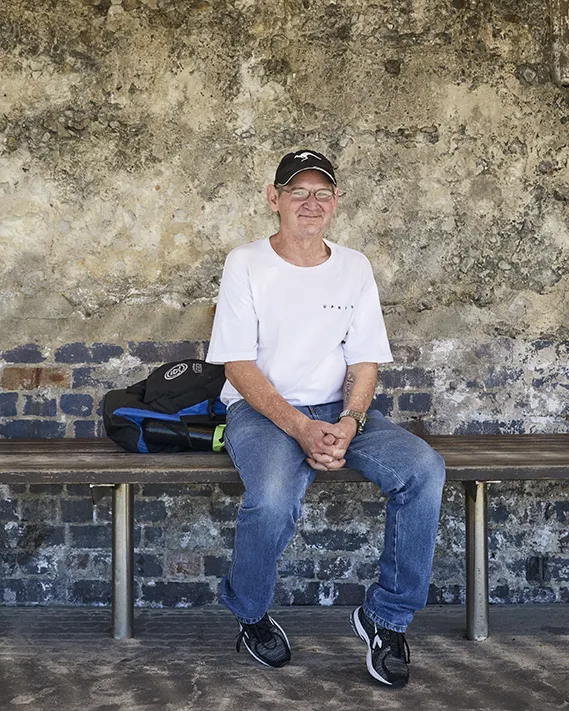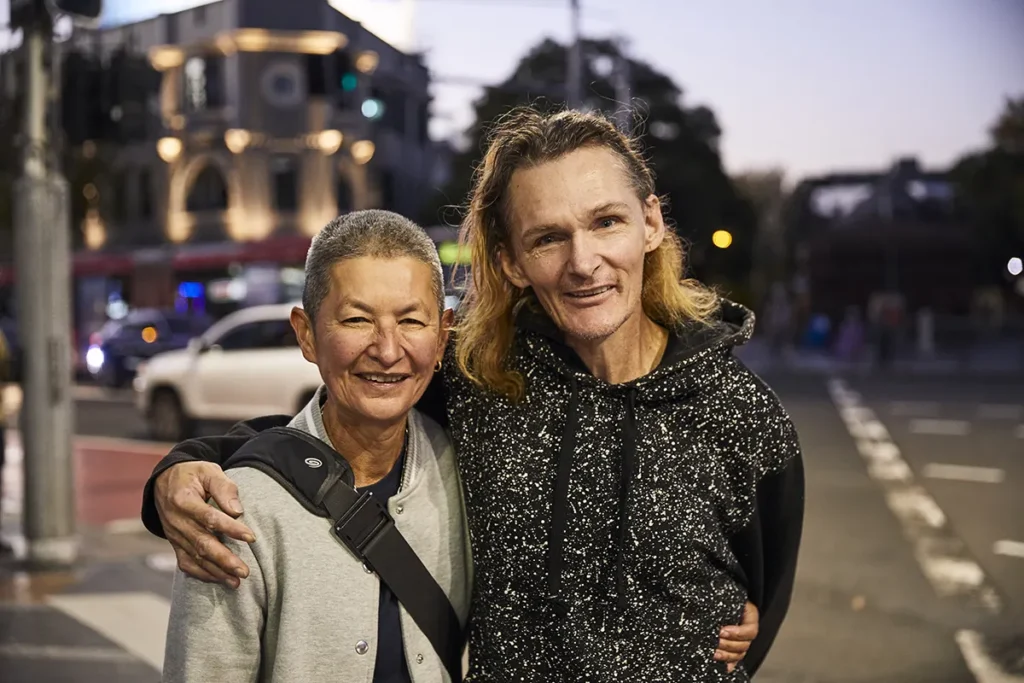What is HIV?
HIV stands for Human Immunodeficiency Virus. It is a virus that attacks the body’s immune system – more specifically the CD4 cells (T cells), which are crucial for fighting off infection. Over time, if untreated, HIV can destroy many of these cells because the body is unable to fight the infection or disease.
What is AIDS?
AIDS stands for Acquired Immune Deficiency Syndrome. It is the most severe phase of an HIV infection. AIDS is a collection of symptoms and illnesses that occur when the immune system is severely damaged by the HIV virus.
You cannot get an AIDS diagnosis unless you are already HIV positive.
In the 1980s and early 90s, most people with HIV were eventually diagnosed with AIDS. However, thanks to modern antiretroviral treatment (ART), very few people in Australia now develop serious HIV-related illnesses. The term AIDS is not commonly used by Australian medical practitioners today. Instead, they may refer to late-stage or advanced HIV.

Untreated HIV and transmission
If left untreated, HIV transmission passes through several stages:
- Acute HIV infection: this stage occurs within two to four weeks after infection with HIV. It is often described as a heavy flu, with symptoms like fever, swollen glands, sore throat, rash, muscle and joint aches and headache. These effects of seroconversion do not always occur. It is important to test often.
- Chronic HIV infection: also known as ‘asymptomatic HIV infection’ or ‘clinical latency.’ During this phase, HIV is still active but reproduces at very low levels. People may not have any symptoms or get sick during this time.
- Late-stage HIV: the most severe phase of HIV infection. As HIV has already damaged the immune system, the body cannot fight off opportunistic infections and diseases.
HIV can be transmitted through blood, semen, vaginal fluids, anal mucus and breast milk if the person has a detectable viral load.
It is not transmitted through spitting, sneezing, coughing, kissing or general social contact. HIV cannot survive long outside the human body.
Undetectable viral load
Studies have shown that a person on effective treatment with an undetectable viral load can not transmit HIV to others.
This is the message of the U=U campaign, which stands for Undetectable = Untransmittable.
When a person living with HIV is on regular treatment that lowers the amount of the virus in their body to undetectable levels, there is zero risk of passing on HIV to their partners. With an undetectable viral load, you can have sex, get pregnant and breastfeed without transmission.
Advances in HIV treatment
Modern HIV treatment has come a long way. ART is highly effective at controlling the virus, allowing people living with HIV to lead long, healthy lives. In fact, people living with HIV have the same life-expectancy as those who do not have HIV. New treatments and combination therapies are making it easier for people to adhere to their treatment plans.
Australia is a global leader in the response to HIV. The 9th National HIV Strategy 2024-2030 aims to:
- Ensure that all people living with HIV have free access to ART even if they do not have Medicare
- Promote the U=U message
- Add long-acting injectable ART to the Pharmaceutical Benefits Scheme as an alternative treatment option
- Increase the availability of rapid HIV testing and making telehealth services for both bloodborne and sexual health permanent.
Australia is one of the few countries to achieve the UNAIDS target of 90-90-90. This means:
- 91% of people living with HIV had received a diagnosis
- Of those diagnosed, 91% were receiving antiretroviral treatment
- Of those receiving this treatment, 97% had a suppressed viral load.
Building on this success, Australia is now working towards a new target of 95-95-95.
The role of Bobby Goldsmith Foundation
BGF is a key partner in implementing the NSW HIV Strategy and supporting the national response.
We do this through:
- Helping people living with HIV to maintain a healthy quality of life
- Helping people living with HIV remain adherent to their treatment and through practical, emotional and financial care and support
- Working to reduce the effects of stigma and discrimination
- Providing comprehensive psychosocial support to address the mental and emotional wellbeing of people living with HIV
- Advocating for the rights of people living with HIV and educating the community to foster a better understanding of HIV and stigma.
We also contributed to the development of the South Australian HIV Strategy 2025–2030, having been consulted as part of the strategy’s formation.
HIV disclosure
HIV disclosure refers to the act of informing someone about your HIV status. This is a deeply personal decision and can have significant emotional and social implications. It is important to respect someone’s choice about when, how and to whom they disclose their HIV status.
Disclosure can play an important role in reducing stigma, generating support and improving mental health, but it must always be done in a safe and supportive way. Respecting someone’s disclosure means acknowledging their courage and maintaining their confidentiality.
In Australia, there are some circumstances where you are required to disclose your HIV status. Disclosure laws differ depending on which state you live in. Learn more from Health Equity Matters.
Accessing HIV medication – S100 prescribers
If you’re living with HIV, accessing the right medication is a vital part of your care. In Australia, HIV medications are prescribed by specially approved medical practitioners known as S100 prescribers.
These prescribers are trained to provide HIV treatment and support in line with national guidelines. You don’t need a referral to see an S100 prescriber – and they can be found in both hospital and community settings.
Find an HIV S100 prescriber near you via the Australasian Society for HIV, Viral Hepatitis and Sexual Health Medicine (ASHM).
Resources for people living with HIV
There are a range of resources available for newly-diagnosed people and for those who have been living with HIV for many years:
- ACON is New South Wales’ leading LGBTQIA+ health organisation providing a range of programs and services to support people living with HIV
- Health Equity Matters is the national federation for Australia’s leading HIV and LGBTQIA+ organisations
- HIV/AIDS Legal Centre (HALC) is a specialist community legal centre that provides free and comprehensive legal assistance to people in NSW with HIV-related legal matters
- Multicultural HIV and Hepatitis Service works with culturally diverse communities in NSW to reduce the impacts of both HIV and hepatitis
- National Association of People Living with HIV Australia (NAPWHA) provides advocacy, policy, health promotion, effective representation and outreach on a national level
- Positive Life NSW is the largest peer-led organisation in Australia, providing people living with HIV access to information, referrals and advocacy
- Positive Life SA is a provider of information, advocacy and support to positive people across South Australia
- Pozhet offers support, information and advice to heterosexual people at risk of, or living with HIV
- SAMESH provides community-based support for education, training and advocacy in South Australia
- SHINE SA provides inclusive sexual health services and support for people living with HIV in South Australia, including education, counselling and clinical care


